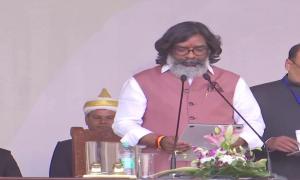Internet usage has grown exponentially in the past few years throughout the world. India has not been left far behind in the race of Internet penetration. The growth of commerce over the Internet has also shown corresponding growth and has a rich potential for tax revenues. There are three broad areas of the Net that can be taxed: e-commerce, online services and online advertising.
E-commerce essentially means using the Internet as a means for buying, selling and transmission of goods and services. Sale of goods is liable to value added tax and provision of service is liable to service tax as in normal circumstances.
However, the problem of jurisdiction and liability in case of taxation of e-commerce ensues. Online services of online information and database access and retrieval are liable to service tax.
All websites charging for accessing information or data in any form are liable to service tax. Most of other services provided over the Internet get covered under various heads of service tax.
Online advertising has gained prominence as the Internet is an interactive media and one can view the product or service being offered instantly. Service tax is levied on an advertising agency rendering any service connected with the making, preparation, display or exhibition of advertisement. In a recent case of M/s Google India Pvt Ltd, the Authority of Advance Ruling, held that even by merely selling space for display of an advertisement, Google would be providing a service to the advertisers and covered by the definition of advertising agency.
The question is not about how the law gets interpreted to cover taxation of various services over the Internet, it is about how law is framed keeping the Net in mind. The reason is that it is difficult to import the definitions that are used in the real world to the virtual world. The important thing, however, is that the Internet should not be taxed by subjective interpretation but by conscious decision.
In the present Budget, a step has been taken to align this problem. Selling of time and space slots for advertisements other than in print media have been made taxable. Internet advertisements in all form get covered by that.
All communications through the Internet have been included as a part of Internet telephony and are chargeable to service tax. Both these services are currently being taxed by interpretation rather than by conscious legislation.
The Internet is a whole new way of communicating and presenting information. Services provided over the Net involve issues that are different from conventional media such as print or electronic.
The debate over how to tax the e-commerce and services provided over the Net continues. Accordingly, taxing the Internet should be a thought-out policy decision and not a by-product of a conventional tax policy.
The writer is Joint Commissioner, Commissionerate of Service Tax, Delhi. The views expressed are personal.Do you want to discuss stock tips? Do you know a hot one? Join the Stock Market Discussion Group









More from rediff